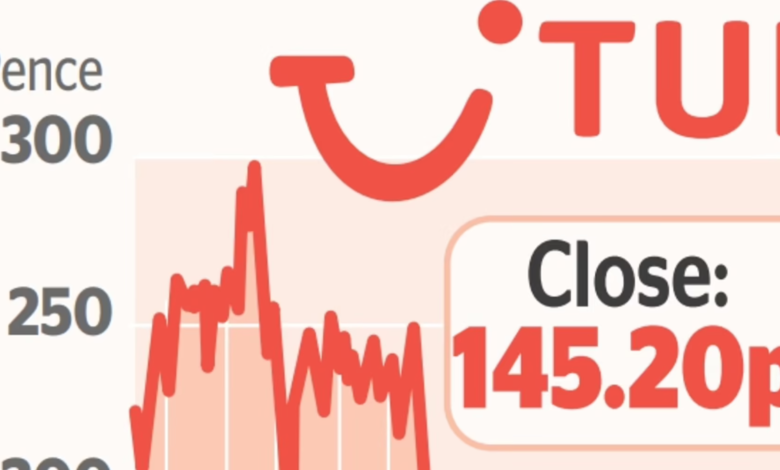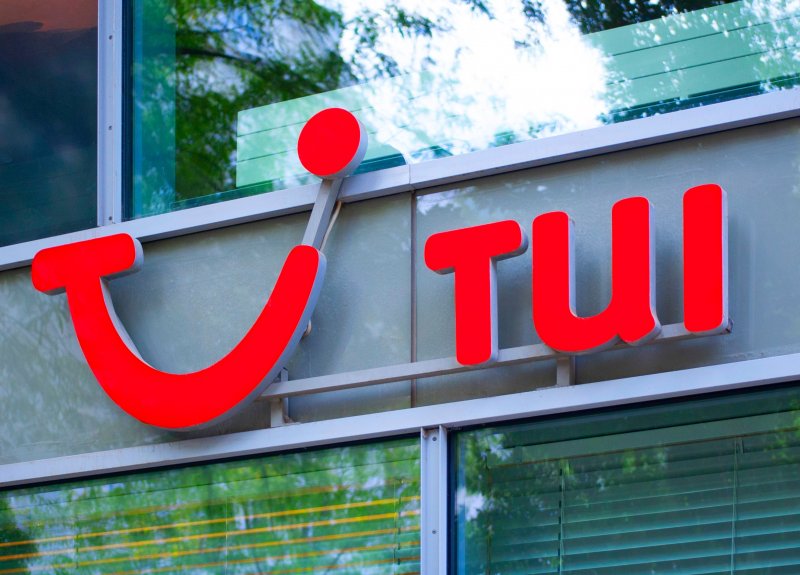TUI Share Price: A Deep Dive into the Travel Giant’s Market Moves

Curious about the TUI share price? Dive into this expert-level yet casual analysis of TUI’s stock performance, trends, investor insights, and future outlooks. Stay informed and ahead of the curve.
Understanding the TUI Share Price Journey
The TUI share price has always been a hot topic among travel industry investors. TUI Group, one of the world’s largest travel and tourism companies, naturally garners attention from traders, analysts, and vacationers alike. From family holiday bookings to large-scale cruise lines and resorts, TUI’s presence spans continents. As such, its share price serves as a key indicator of not just the company’s health but also the travel industry at large.
When we talk about the TUI share price, we’re looking at much more than just numbers on a screen. We’re diving into economic health, consumer sentiment, pandemic recovery, fuel prices, and even geopolitical tensions. It’s all interconnected, and that makes TUI shares one of the most intriguing topics in both financial and travel circles.
What Drives the TUI Share Price?
There are a ton of moving parts that affect the TUI share price. For starters, seasonality plays a massive role. During summer and winter holidays, demand for travel spikes, and you’ll often see TUI share prices respond accordingly. But seasonality is just one piece of the puzzle.
Macroeconomic indicators like inflation, exchange rates, and interest rates also pull strings behind the scenes. For a company like TUI that deals heavily with international markets, currency fluctuations can significantly impact profit margins. If the euro weakens against the dollar or pound, for instance, costs might rise, which investors immediately notice.
Then there’s the impact of fuel prices. Airline fuel costs are a massive operational expense for TUI, especially considering their expansive airline operations. A rise in oil prices tends to spook investors, leading to downward pressure on the TUI share price.
TUI Share Price and the COVID-19 Aftermath
No discussion about the TUI share price is complete without addressing the elephant in the room: COVID-19. The pandemic nearly brought global travel to a standstill, and naturally, TUI took a hit. The share price plunged as the company halted most operations and sought state-backed support.
Post-pandemic, however, we’ve seen a fascinating recovery story. As restrictions eased, travel demand exploded. People had cabin fever like never before, and revenge travel became a real phenomenon. TUI shares started climbing again, reflecting the surge in holiday bookings and improved financial outlooks.
Yet, the recovery hasn’t been linear. There have been bumps—variant outbreaks, changing travel regulations, and staffing issues at airports and hotels. These disruptions often reflect directly in the TUI share price, which tends to be sensitive to both good and bad news in the sector.
Investor Sentiment Around TUI Shares

Investor sentiment plays a big part in determining the TUI share price. It’s not just about earnings reports or operational updates. Perceptions matter—a lot. If analysts are bullish and start recommending TUI stock as a “buy,” you’ll likely see upward momentum.
The flip side is also true. Downgrades, negative news coverage, or poor earnings reports can spook investors. Even travel-related news that doesn’t directly involve TUI can have ripple effects. For instance, a major airport strike in Germany or fuel shortages can cast doubt over the travel season and impact TUI’s valuation.
Many retail investors also play the sentiment game with TUI shares. Thanks to trading apps and online communities, opinions spread fast. A viral Reddit post or Twitter thread can lead to sudden spikes or drops. While not always rational, these movements still influence the TUI share price.
TUI’s Financial Performance and Share Price Trends
Looking at TUI’s financials gives us more concrete insight into the TUI share price. Revenue, profit margins, debt levels, and cash flow all contribute to market valuations. Historically, TUI has had strong quarters, particularly during high-demand seasons, but like most travel firms, it’s not immune to economic downturns.
One key metric investors monitor is TUI’s debt. During the pandemic, the company took on significant financial support to stay afloat. While that kept the business running, it also added pressure on future earnings to pay down debt. This concern often weighs on the TUI share price during quieter quarters.
Another trend to keep an eye on is TUI’s digital transformation efforts. As more people book holidays online, TUI has invested in mobile platforms and personalized booking systems. These innovations could drive future revenue and boost investor confidence, thereby impacting the share price positively.
TUI Share Price vs. Competitors
It’s also smart to look at how the TUI share price stacks up against competitors like Jet2, EasyJet, and Ryanair. These comparisons offer valuable context. For instance, if all airline and travel stocks are rising but TUI is lagging, that could signal internal issues or market skepticism specific to TUI.
On the flip side, if TUI shares outperform rivals during a slow season, it might reflect confidence in the company’s leadership or unique market positioning. Factors like exclusive resort partnerships or innovative cruise offerings can give TUI a competitive edge.
Market analysts often use relative valuation metrics to compare these stocks. Price-to-earnings ratios (P/E), earnings per share (EPS), and enterprise value (EV) are all scrutinized when trying to determine whether the TUI share price is overvalued, undervalued, or fairly priced.
Recent News Affecting TUI Share Price
Keeping up with the news is essential if you’re tracking the TUI share price. Everything from quarterly earnings and leadership changes to geopolitical developments can move the needle.
One notable example was when TUI announced plans to repay government-backed loans ahead of schedule. That kind of news boosts investor confidence and can send the share price soaring. Conversely, delays in such repayments or talks of further financing needs might spook the markets.
Other impactful news events include climate policy updates, airport labor strikes, and fuel supply chain issues. Any factor that could affect travel plans directly or indirectly will likely ripple into the TUI share price.
Should You Buy TUI Shares?
Now to the golden question: is it a good time to buy TUI shares? That depends on your risk appetite, investment timeline, and market perspective. TUI offers high reward potential, especially in a booming travel market, but it also comes with high risk.
If you believe travel will continue to grow post-pandemic and that TUI is well-positioned to capitalize, the current TUI share price might seem like a bargain. But you should also be prepared for volatility. From pandemics to passport issues, the travel sector is highly sensitive to external shocks.
Many analysts recommend a cautious approach. Diversifying your portfolio rather than going all-in on TUI is generally wiser. Still, for those willing to weather short-term turbulence, the long-term outlook on TUI can be promising.
Long-Term Outlook for TUI Share Price
Looking ahead, the long-term prospects for the TUI share price hinge on several factors: technological adoption, sustainability efforts, customer loyalty, and global travel demand. TUI is taking bold steps in all these areas, which could spell good news for its stock price.
The company has been investing in green energy, reducing carbon emissions across its fleet, and offering more sustainable travel options. As ESG (Environmental, Social, and Governance) investing grows, TUI’s sustainability efforts could attract ethical investors, thereby boosting its share price.
Another growth area is emerging markets. TUI is expanding operations in Asia and Latin America, regions expected to see massive increases in outbound tourism. Tapping into these markets could be a game-changer for future earnings and market sentiment.
TUI Share Price Forecasts and Analyst Opinions

Forecasting the TUI share price is part science, part art. Analysts use models based on earnings projections, cash flow, and macroeconomic indicators to come up with target prices. While these are helpful, they should never be the sole basis for your investment decision.
Currently, analyst opinions on TUI shares are mixed. Some see a potential upside driven by strong summer bookings and easing inflation. Others are concerned about debt levels and external risks. Reading between the lines, the consensus seems to be cautious optimism.
One thing’s for sure—as long as the world keeps traveling, TUI will remain a significant player, and its share price will continue to be a point of interest for investors around the globe.
Table: Key Factors Affecting TUI Share Price
| Factor | Impact on Share Price |
|---|---|
| Seasonality | High during holiday peaks |
| Fuel Prices | High costs lower margins |
| Currency Fluctuations | Impacts international profit |
| Debt Levels | High debt can scare investors |
| Sustainability Efforts | Attracts ESG investors |
| Digital Transformation | Enhances revenue potential |
| Global Economic Conditions | Directly influence bookings |
Quotes from Market Analysts
“TUI’s recovery is on the right path, but investors should keep a close eye on debt reduction and seasonal earnings.” — Financial Times
“While volatile, the TUI share price holds promise for long-term investors who believe in the resurgence of global travel.” — Bloomberg Markets
FAQs About TUI Share Price
What is the current TUI share price?
The TUI share price fluctuates daily based on market conditions. Check a reliable financial website like Bloomberg, Yahoo Finance, or your trading platform for real-time updates.
Is TUI a good investment?
It depends on your financial goals. TUI shares can offer growth potential, especially with travel rebounding. But be prepared for volatility and market risk.
Why did the TUI share price drop during the pandemic?
Global travel bans and lockdowns halted operations, drastically reducing revenue and forcing the company to seek financial aid, leading to a significant drop in share price.
How can I buy TUI shares?
You can purchase TUI shares through most online brokerages or trading apps. Make sure to research the fees, terms, and tools provided before investing.
Does TUI pay dividends?
TUI suspended dividends during the pandemic. Whether it resumes payouts depends on future earnings and company strategy.
What are the risks of investing in TUI?
Major risks include fuel price volatility, economic downturns, regulatory changes, and unpredictable travel demand.
Conclusion: The Big Picture on TUI Share Price
Tracking the TUI share price is like following a global travel diary. There are ups, downs, and unexpected layovers. But if you’re the kind of investor who thrives on long-term growth stories and believes in the future of global tourism, TUI shares could be worth your attention.
As always, keep your eyes on the news, follow analyst updates, and make sure to do your own research. The TUI share price is a window into more than just financial numbers—it’s a lens on how the world moves.





